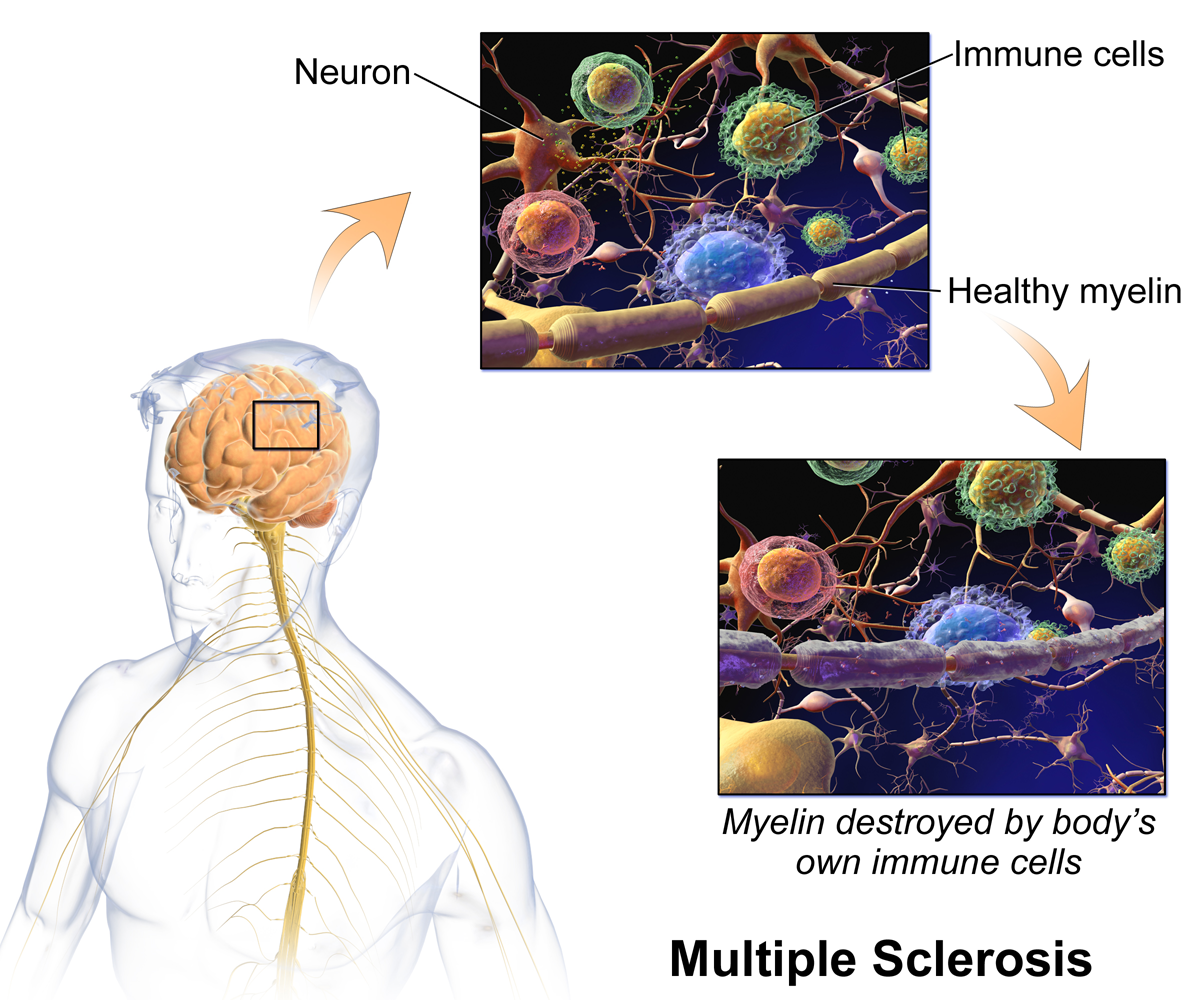Nutrition and Multiple Sclerosis - Part 1
Nutrition and Multiple Sclerosis - Introduction
Introduction
These days, there is plenty in the press and the bookshops on the importance of diet to keep us healthy. This is the case for everybody but particularly those with specific health issues. There is a large amount of anecdotal evidence from people who say that changing their diet has helped their multiple sclerosis, there is some research on the topic, but much of it is done on a small scale. The general trend in the dietary recommendations is to cut back on animal fats, gluten, dairy products and the ever increasing amount of chemicals to be found in our food and increase our intake of fatty acids. There is also plenty of research available proving the importance of taking nutritional supplements (Holford, 2006) on a regular basis, since the quality of food has diminished so much that it is hard, if not impossible, to get sufficient intake of the essential vitamins, minerals and other nutrients required for healthy living. Obviously supplementation is particularly important in those who are already suffering from poor health.
Healthy eating is something I feel very strongly about and am regularly asked to give advice on. Whilst I can give general advice there is a demand for more specific dietary advice relating to multiple sclerosis. Our diets today contain many more chemicals and more processed foods where many of the nutrients have been removed and our bodies are not made for this.
Unfortunately the doctors don't have much knowledge of diet in relation to health and so are unable to give information on this. I feel that if they gave more dietary information more people would take this aspect of health more seriously, than if people like me advised them.
Fortunately, mainly due to people like Jamie Oliver and Gillian McKeith, the importance of healthy eating is coming more and more into the limelight and people are starting to realise how what they eat can affect their health. As Gillian McKeith says "you are what you eat". Diet doesn't just affect your weight and your skin, but also every other part of your body. Different people may get different conditions such as multiple sclerosis, heart disease or cancer, this is partly genetic, different people will have tendencies to get different conditions, but bad eating can lead to the appearance of the disease whereas a healthy diet may ensure that it never happens (Traill, 2006, Food Standards Agency, 2006). During my research I have come across other issues considered important in the natural treatment of multiple sclerosis, such as the removal of mercury fillings (Mann, 2005), but these are outside the scope of this assignment.
There are various diets suggested for using with multiple sclerosis. The most popular of these are the Swank Diet (Swank and Dugan, 1987), the Best Bet Diet (Direct MS, 2006) and the diet proposed by Jan de Vries and Roger MacDougall (De Vries, 2002). All these diets recommend very limited or no dairy products in the diet, low animal fats, very limited sugar intake and plenty of essential fatty acids and fresh fruit and vegetables. Some of this research has been going on for over 40 years. This closely corresponds to the general recommendations for a healthy diet for everyone which is increasingly recommended. There is also research on many specific nutrients which seem to help multiple sclerosis (Timmerman, 1999; Payne, 2001; Rona, 2006).
Whilst these diets have good testimonials and research to support them, it is also important to check for individual food allergies and intolerances (Brostoff and Gamlin, 1998) and nutritional deficiencies (Brewer, 2002) and deal with these as appropriate.
Within this essay I will establish the types of diet proposed as a means of controlling multiple sclerosis, reflect on the dietary habits of clients with multiple sclerosis encountered in practice, review the literature and research in relation to possible mechanisms of action of dietary factors in multiple sclerosis pathology, evaluate the effectiveness of dietary factors in controlling multiple sclerosis and recommend suitable practice interventions for diet in people with multiple sclerosis.
Discussion of existing dietary methods
In my experience, people with multiple sclerosis have similar experience and knowledge of a healthy diet to the rest of us. We all know that we should be eating five portions of fruit and vegetables a day, should cut down on salt, sugar and saturated fat and so on, and some of us do this and some of us don't. Even those who are intelligent and very well informed on the subject of multiple sclerosis don't seem to know much, if anything, about the dietary research. Little, if any, advice is given on diet, even if the doctors are specifically asked. They do not have the knowledge or the information to give.
Many people do not realise quite how important diet is and many that do are not sure how to go about ensuring that their diet is well balanced. Many people try to have their five portions of fruit and vegetables every day, but the information on fats is so complicated that they have difficulty understanding it. Also it's not made clear that diet can actually ease, if not remove, the symptoms of many conditions and there is plenty of research to support this (Brewer, 2002). I meet a lot of people who say "I know that I should eat more healthily, but ...", people know that they should eat better but for one reason or another do not. I feel that it needs to be given a higher priority and people need support, encouragement and straightforward information to achieve this.
Reflection on use of dietary methods
It is important to bear in mind that those with multiple sclerosis often have limited energy and limited mobility and if they are cooking for themselves need to be able to make their food easily and simply. Obviously the temptation could be to buy ready made meals which tend to be less healthy. However there is an increasingly growing range of easy healthy food available. Also, the effort involved in a substantial change in diet, such as cutting out wheat and dairy products, could just be too much for a more seriously affected person to deal with, and a lot of support would be necessary. However, with practice it gets much easier. For those with access to the internet, there is plenty of support and information available.
Another issue is that the depression that can occur with multiple sclerosis. About half of those with multiple sclerosis suffer from serious depression (Burgess, 2002), and many others have a milder form. This depression makes it hard to get the motivation to change the diet and gives the tendency to eat lots of chocolate, chips or whatever gives the individual a temporary boost.
- Nutrition and Multiple Sclerosis Part 2
For the next part of this article, click the link









